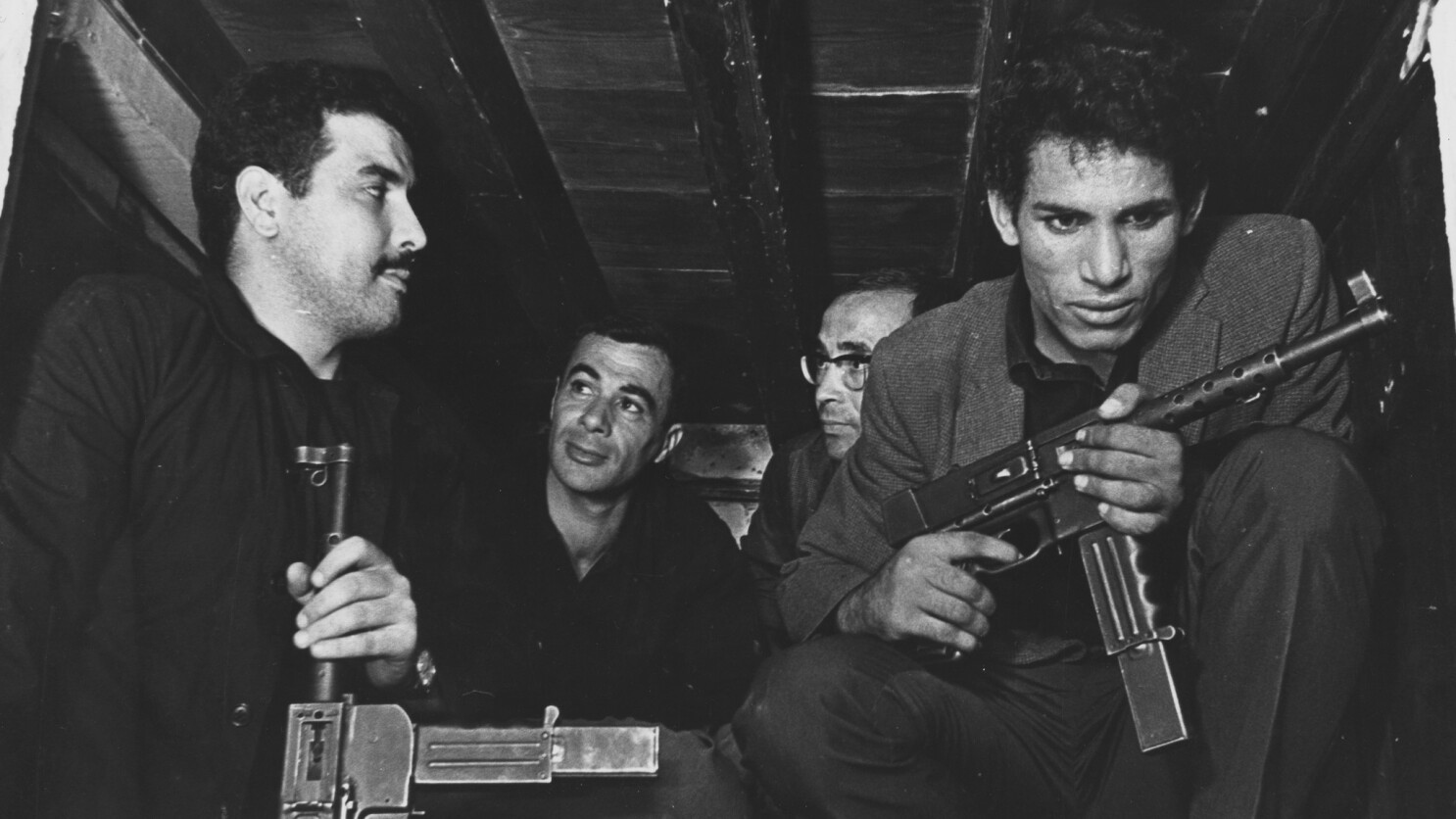← Back to Reviews
in
Algeria was invaded by France in 1830. The invasion effectively ended the slave trade and piracy in the country. However, during colonial rule, the indigenous Algerian population declined as a result of violence and epidemics while French immigrants took control of the economy by confiscating arable lands from tribal people. This left the native Muslim population without political or economical status, which led to dissatisfaction, tensions, and eventually, more violence.
The Battle of Algiers follows the near culmination of that violence, as it chronicles the efforts of Algerian rebels (the FLN) against the French during the late 1950s. The film follows a quasi-documentary style, while focusing on revolutionary fighter Ali La Pointe (Brahim Haggiag), who rose the ranks of the revolution until he pretty much became a right-hand man to the FLN leaders, and hence, a nuisance to the French government.
The documentary-style gives the film a gritty and realistic vibe. Without leaning heavily into any side, it helps to get a better understanding of how this war unfolded. There are no good guys or bad guys; just people fighting for their place and what they think is right. The portrayals of urban and guerrilla warfare, torture, and the extents to which each side would go to "win" is well handled.
On the other hand, this approach limits the emotional connection we can have with any character. Not that it was the goal of the film or that it *needed* it, but I felt it could've been good to have someone more tangible to hold onto. La Pointe is an enigmatic and probably interesting character, but we never get to really explore his way of thinking, or of any character actually. He's more of a blank slate than an open book.
Regardless of that, Pontecorvo's direction is tight, and he knows how to handle tension. The scenes where the rebels perform concealed attacks on the French are neatly staged and directed. Also, despite the filmmaker's restrain in regards to the situation, I think the film succeeds in showing the unwanted effects of "Western colonization" in other cultures, and how the violence of the process (invasions, confiscations, eradication) will only breed more violence; but also that the hardest job of all comes once the dust has settled.
Grade:
THE BATTLE OF ALGIERS
(1966, Pontecorvo)
A film from the Criterion Collection whose number includes the #2 (#249)

(1966, Pontecorvo)
A film from the Criterion Collection whose number includes the #2 (#249)

"It's hard to start a revolution. Even harder to continue it. And hardest of all to win it. But, it's only afterwards, when we have won, that the true difficulties begin."
Algeria was invaded by France in 1830. The invasion effectively ended the slave trade and piracy in the country. However, during colonial rule, the indigenous Algerian population declined as a result of violence and epidemics while French immigrants took control of the economy by confiscating arable lands from tribal people. This left the native Muslim population without political or economical status, which led to dissatisfaction, tensions, and eventually, more violence.
The Battle of Algiers follows the near culmination of that violence, as it chronicles the efforts of Algerian rebels (the FLN) against the French during the late 1950s. The film follows a quasi-documentary style, while focusing on revolutionary fighter Ali La Pointe (Brahim Haggiag), who rose the ranks of the revolution until he pretty much became a right-hand man to the FLN leaders, and hence, a nuisance to the French government.
The documentary-style gives the film a gritty and realistic vibe. Without leaning heavily into any side, it helps to get a better understanding of how this war unfolded. There are no good guys or bad guys; just people fighting for their place and what they think is right. The portrayals of urban and guerrilla warfare, torture, and the extents to which each side would go to "win" is well handled.
On the other hand, this approach limits the emotional connection we can have with any character. Not that it was the goal of the film or that it *needed* it, but I felt it could've been good to have someone more tangible to hold onto. La Pointe is an enigmatic and probably interesting character, but we never get to really explore his way of thinking, or of any character actually. He's more of a blank slate than an open book.
Regardless of that, Pontecorvo's direction is tight, and he knows how to handle tension. The scenes where the rebels perform concealed attacks on the French are neatly staged and directed. Also, despite the filmmaker's restrain in regards to the situation, I think the film succeeds in showing the unwanted effects of "Western colonization" in other cultures, and how the violence of the process (invasions, confiscations, eradication) will only breed more violence; but also that the hardest job of all comes once the dust has settled.
Grade:
